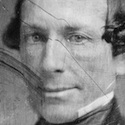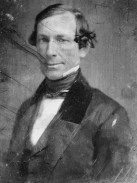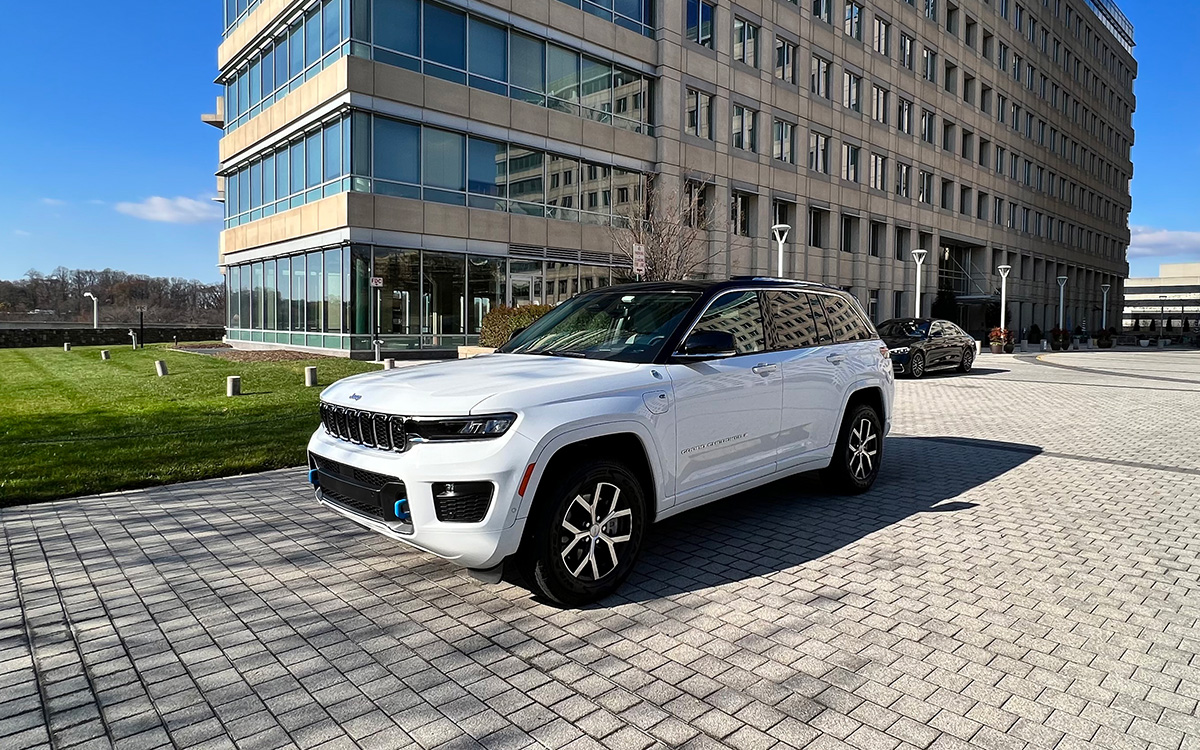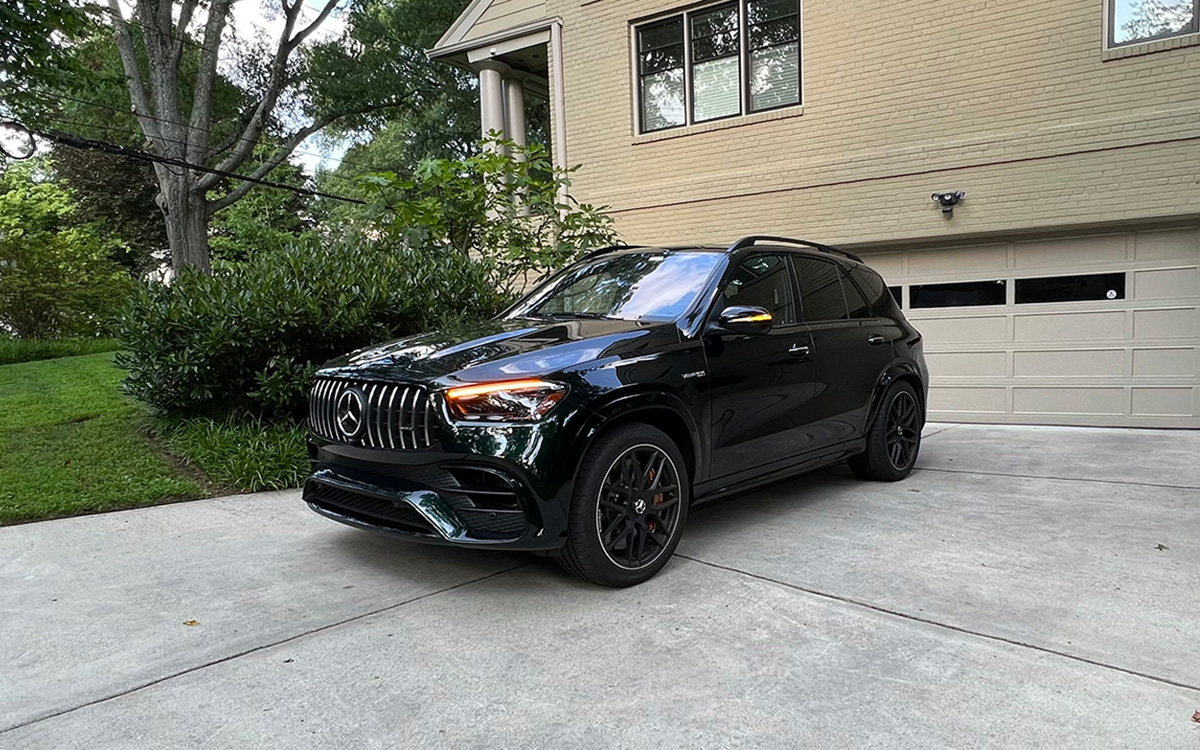Living
America’s first gay vice president?
‘Lifelong bachelor’ William Rufus King lived with President Buchanan

Editor’s note: This is the first installment in a month-long series profiling prominent figures in American history who were gay (or rumored to be) as part of the National Gay History Project commemorating LGBT History Month. For more coverage, visit washingtonblade.com.
William Rufus DeVane King, the 13th United States vice president, has the distinction of having served in that office for less time than any other vice president.
He died of tuberculosis on April 18, 1853, just 25 days after being sworn into office on March 24, 1853, according an official biography of King prepared by the Office of the Historian of the U.S. Senate.
Other historians have speculated that King holds yet another distinction — the likely status of being the first gay U.S. vice president and possibly one of the first gay members of the U.S. House of Representatives and the U.S. Senate.

William Rufus DeVane King, the 13th United States vice president, is believed by some historians to have been gay. He holds the distinction of being sworn into office on foreign soil, while in Cuba for health reasons.
King (1786-1853) served in the House of Representatives from North Carolina for six years beginning in 1811 and later served in the Senate from the newly created state of Alabama from 1819-44, when he became U.S. minister to France.
He returned to the Senate four years later, in 1848, where he served until December 1852, when he resigned after winning election in November 1852 as vice president on the ticket of Franklin Pierce.
A lifelong bachelor, King lived for 15 years in the home of future U.S. president James Buchanan while the two served in the Senate. Buchanan, also a lifelong bachelor, is believed by some historians to be the nation’s first gay president.
“They certainly didn’t have the word gay back then,” said Paul F. Boller Jr., professor emeritus of history at Texas Christian University and author of several books on presidential politics, including the book “Presidential Campaigns: From George Washington to George W. Bush.”
In a telephone interview, Boller said Washington insiders at the time speculated over whether King and Buchanan’s well-known close friendship had evolved into a romantic relationship.
“I don’t think the word homosexual was used either,” Boller said. “So they’d sort of use the term ‘a little feminine’ and all of that.”
Boller and historian Jean H. Baker, professor of history at Maryland’s Goucher College and author of a biography of Buchanan, each cite reports that President Andrew Jackson referred to King as “Miss Nancy” and “Aunt Fancy.” Aaron V. Brown, who became U.S. postmaster general while Buchanan was president, reportedly referred to King as Buchanan’s “wife.”
Baker reports in her Buchanan biography that King’s and Buchanan’s nieces reportedly destroyed their uncles’ correspondence with each other, fueling speculation that the two men were in a gay relationship that their families wanted to conceal.
In one letter that survived, Buchanan expressed sadness over King’s departure from his house in 1844 to become the U.S. envoy to France.
“I am now solitary and alone, having no companion in the house with me,” Buchanan wrote. “I have gone a wooing to several gentlemen, but have not succeeded with any one of them.”
King’s relationship with Buchanan, who was from Pennsylvania, could have been a factor in Buchanan’s sympathy for the South during Buchanan’s tenure as a senator and later as president from 1857-61.
Most accounts by historians of King’s political career portray him as a moderate southerner who supported slavery while emerging as a strong unionist. King voiced opposition in the Senate to calls by some of his fellow southerners for the South to secede from the United States during the tense decade prior to the Civil War.
“From such a calamity may God in His mercy deliver us,” King wrote in expressing opposition to the growing calls for secession.
King was born in 1786 in Sampson County, N.C., to a family of wealthy planters. His father owned more than two-dozen slaves, the Office of the Senate Historian reports in its biography of King.
It says King attended an elite preparatory school before attending the University of North Carolina, where he studied law. Following a legal apprenticeship, he was admitted to the state bar in 1805 and began a legal practice. He served in the North Carolina Legislature from 1808-09 and won election in 1810 to the U.S. House and began serving as a congressman in 1811 at age 25.
He resigned from the House in 1816 to enter the world of diplomacy by taking a job as legation secretary for William Pinkney, who was appointed by President James Monroe as U.S. minister to Russia in St. Petersburg. King returned to the U.S. in 1818, when he moved from North Carolina to the territory of Alabama, becoming one of the leaders of the Alabama statehood movement.
The Senate historian’s biography says King purchased 750 acres of land in Alabama and established a plantation. He later joined others to form a land company that founded the town of Selma, which King reportedly named. In December 1819, he became one of Alabama’s first two U.S. senators.
As a moderate Democrat, King became an early supporter of Andrew Jackson’s quest to become president, the Senate biography says. It quotes an unnamed critic of King as describing him as a “tall, prim, wig-topped mediocrity,” noting that King wore a wig “long after such coverings had gone out of fashion.”
The biography quotes a fellow senator as having this to say about King: “He was distinguished by the scrupulous correctness of his conduct. He was remarkable for his quiet and unobtrusive, but active practical usefulness as a legislator … To his honor be it spoken, he never vexed the ear of the Senate with ill-timed, tedious or unnecessary debate.”
The Encyclopedia of Alabama reports in a 2003 article that rumors circulating in Washington about King’s sexual orientation increased as his close friendship with Buchanan became widely known.
“Neither man ever married, and by 1836 they were sharing a residence in Washington,” the encyclopedia article says. “Any negative reactions to their relationship appear to have had little effect, and the men continued with their living arrangement and their work as legislators.”
By 1840, newspapers in Alabama supportive of the Democratic Party, of which King was a prominent member, promoted King as a vice-presidential running mate for incumbent President Martin Van Buren. Although King received little support outside Alabama for the vice-presidential nomination, he continued to position himself behind the scenes as a possible vice-presidential candidate for the next two decades, the Alabama Encyclopedia reports.
The Senate biography of King says President John Tyler interrupted King’s vice-presidential ambitions in 1844 when he nominated him to become U.S. minister to France and the Senate quickly confirmed the nomination by a lopsided margin.
The bio says King succeeded in his main mission to persuade France not to oppose U.S. plans to annex Texas, which the U.S. acquired following the Mexican-American War.
King returned to the Senate in 1848, two years after completing his service in France. In July 1850, King became the de facto U.S. vice president when President Zachary Taylor died in office and then-Vice President Millard Filmore became president, leaving the office of vice president vacant.
King’s Senate colleagues responded by unanimously selecting him as president pro tempore of the Senate, which normally would have placed him third in line to become president. With the vice president’s post vacant, King emerged as first in line to become president if Filmore were to die in office.
In 1852, after years of vying for the vice-presidential nomination, the constellations appeared to be in perfect alignment with Democratic Party politics for King’s longtime dream. After nominating Franklin Pierce for president on the 49th ballot, the Democratic Convention, convening in Baltimore, nominated King as Pierce’s running mate. In the ensuing months, King campaigned aggressively for the Pierce-King ticket, playing some role in Pierce’s victory in November 1852.
But biographers report that King’s coughing spells became increasingly frequent and painful, leading to a diagnosis of tuberculosis. By December 1852, King described himself to friends as “looking like a skeleton,” the Senate biography reports. Later that month he resigned from the Senate and made arrangements, at the advice of his doctor, to spend the winter in Cuba, where the warm, tropical climate would perhaps help him regain his health.
In early February 1853, King realized his condition was getting worse and he would not be well enough to travel to Washington in time for the March 4 inauguration ceremony.
Upon learning of King’s deteriorating health, Congress took the unusual step of passing a law allowing him to take the oath of office for vice president on foreign soil.
“On March 24, 1853, near Matanzas, a seaport town 60 miles from Havana, the gravely ill statesman, too feeble to stand unaided, became the nation’s 13th vice president,” his Senate biography says.
King boarded a ship to return to the U.S. in April 1853 and arrived home at his Alabama plantation on April 17. He died one day later at age 67.
David Durham, a University of Alabama professor of law and history, said in a Sept. 9 interview that it remains an open question whether King was gay. Durham said it’s also uncertain but a strong possibility that King played a role in shaping Buchanan’s policies and views on the issue of slavery in the years leading up to the Civil War.
“I don’t think anybody can prove it one way or the other,” he said in discussing King’s sexual orientation.
“A lot of the speculation comes from misinterpreting, I think, 19th century lifestyles, where men commonly slept in the same bed and thought nothing of it,” Durham said. “And the kind of terms of affection used in letters and correspondence between males — in our society now it’s like, umm, that’s very interesting. But they thought nothing of it and it didn’t mean there was some kind of romantic attachment,” he said.
“But that’s not to say that there wasn’t,” Durham added.
Real Estate
The rise of virtual home tours
Adapting to changing consumer preferences in spring real estate

In today’s dynamic real estate market, the spring season brings not only blooming flowers but also a surge of activity as buyers and sellers alike prepare to make their moves. However, in recent years, there’s been a notable shift in how consumers prefer to explore potential homes: the rise of virtual tours.
For the LGBTQ community, these virtual experiences offer more than just convenience; they provide accessibility, safety, and inclusivity in the home buying process.
Gone are the days of spending weekends driving from one open house to another – unless that’s your thing of course, only to find that the property doesn’t quite match expectations. With virtual tours, you can explore every corner of a home from the comfort of your own space – find something interesting? Schedule a showing with any LGBTQ Realtor at GayRealEstate.com.
This is particularly significant for LGBTQ individuals, who may face unique challenges or concerns when attending in-person showings. Whether it’s the ability to discreetly view properties without fear of discrimination or the convenience of touring homes located in LGBTQ-friendly neighborhoods across the country, virtual tours offer a sense of empowerment and control in the home buying process.
Moreover, virtual tours cater to the diverse needs of the LGBTQ community. For couples or families with busy schedules or those living in different cities or states, these digital walkthroughs provide a convenient way to view properties together without the need for extensive travel. Additionally, for individuals who may be exploring their gender identity or transitioning, virtual tours offer a low-pressure environment to explore potential living spaces without the added stress of in-person interactions.
At GayRealEstate.com, we understand the importance of adapting to changing consumer preferences and leveraging technology to better serve our community. That’s why our agents offer an extensive selection of virtual tours for LGBTQ individuals and allies alike – visit our website, choose an agent and within minutes you’ll have access to the Multiple Listing Service (MLS) via their website.
From cozy condominiums in bustling urban centers to sprawling estates in picturesque suburbs, virtual tours showcase a wide range of properties tailored to diverse tastes and lifestyles.
In addition to virtual tours, GayRealEstate.com provides comprehensive resources and support to guide LGBTQ buyers and sellers through every step of the real estate journey. Our network of LGBTQ-friendly agents is committed to providing personalized service, advocacy, and representation to ensure that all individuals feel respected, valued, and empowered throughout the process. Plus, we are happy to provide a free relocation kit to any city in the USA or Canada if you are a home buyer.
As we embrace the spring season and all the opportunities it brings in the real estate market, let’s also celebrate the power of virtual tours to revolutionize the way we find and experience our future homes. Whether you’re searching for your first apartment, forever home, or investment property, GayRealEstate.com is here to help you navigate the exciting world of real estate with confidence, pride, and inclusivity.
Jeff Hammerberg is founding CEO of Hammerberg & Associates, Inc. Reach him at [email protected].
Advice
Should I divorce my husband for the hot new guy in our building?
Debating whether to leave or stay after the sex goes cold

Dear Michael,
I’ve been with my husband for 10 years and the sex is pretty much gone. It stopped being exciting a long time ago and pretty much the only time we ever do it is with the occasional third.
A really hot guy moved into our building about a year ago. We would see each other sometimes in the elevator or at our building’s gym and we started talking and really hit it off. Mark is 15 years younger than I but we seem to have a lot in common. We started hooking up and the sex is amazing.
I haven’t told my husband because it’s breaking our rule about no repeats. I have to say that the secrecy is hot. It’s kind of a thrill to take the elevator upstairs when I say I’m going on an errand. But it’s more than that. I have a connection with Mark that is far more amazing than what I have ever felt with my husband. Not just the sex. We just enjoy being together, talking about anything and everything.
My husband went to visit his family last weekend and I spent the whole time with Mark. Since then I can’t stop thinking that I want to leave my husband and be with Mark.
Part of me thinks this is a crazy mid-life crisis. I mean, this kid’s in a totally different place in life. But we have mind-blowing sex and a fantastic connection. I’d like your thoughts on how to proceed.
Michael replies:
You’ve got a lot to consider.
First: Sex with a long-term partner changes over time. It tends to be less about erotic heat and more about the connection with a person whom you love. In other words, it’s being with the person you’re with that makes the sex meaningful and even great. Having a good sexual relationship with a long-term partner comes far more from a heart connection than from a crotch attachment.
Second: You seem ready to throw your relationship under the bus pretty quickly, without addressing other problems in the relationship besides sex. When you are sneaking around, lying, and rule-breaking , I don’t see how you can look your husband in the eye; and if you can’t look him in the eye, you certainly can’t have even a half-way decent relationship.
Yet another point to consider: Affairs pretty much always seem more exciting than marriage. The partner is new, which almost automatically makes the sex hotter; the secrecy is a thrill; and you don’t have to deal with paying the rent, house chores, and all the petty annoyances of living up-close with someone day-in, day-out.
You are bringing lots of energy to your affair, and everything about it is exciting. You are bringing no energy — at least no positive energy — to your marriage. You get what you put into a relationship.
Divorce is not something that should be entered into lightly. Be aware that if you leave your husband for Mark, you will no doubt find over time that the sex becomes less exciting and that the connection is not always fantastic. No surprise, 75 percent of marriages that begin with affair partners end in divorce. While I don’t think statistics predict what will happen to any particular couple, believing that you will have a significantly better relationship with your affair partner than you did with your husband sets you up for likely disappointment.
Many gay men focus on “hot sex” as the big draw, pursuing a lot of sex with a lot of men, and/or pursuing an ongoing series of relationships that last until the sex cools. If that’s what you want, that’s fine. But it’s a different path from pursuing a close and loving long-term relationship, which involves knowing someone well and having him know you well; collaborating on getting through the hard stuff life throws at us; finding ways to make peace with disappointment; and consistently striving to be someone worth being married to.
How to proceed? While you are the only person who should make that decision, I would suggest that whatever your choice, keep in mind that marriage can be more than what you’ve made of it, so far.
Michael Radkowsky, Psy.D. is a licensed psychologist who works with couples and individuals in D.C. He can be found online at michaelradkowsky.com. All identifying information has been changed for reasons of confidentiality. Have a question? Send it to [email protected].
Autos
Sport haulers: Jeep Grand Cherokee, Mercedes GLE-Class
Updated cabins, adept handling, and more

Now that March Madness and the Masters are over, it’s time for, well, everything else. For my husband and me, this means water sports, as in kayaks and rowing sculls, which is why we trekked to the Potomac for the George Washington Invitational regatta last weekend.
Alas, high winds splashed cold water on the event, canceling much of it. But there was still plenty of spirited camaraderie to rival “The Boys in the Boat.”
And I was reminded of my time years ago as a rower with D.C. Strokes, ferrying teammates to races up and down the East Coast. Back then my ride was a dated, rather cramped four-door sedan.
If only we could have paddled around in a sporty SUV like the two reviewed here. Now that would have been some smooth sailing (wink-wink).
JEEP GRAND CHEROKEE
$40,000
MPG: 19 city/26 highway
0 to 60 mph: 7.5 seconds
Maximum cargo room: 37.7 cu. ft.
PROS: Updated cabin, adept handling, strong towing
CONS: So-so gas mileage, no third row, pricey trim levels
IN A NUTSHELL: Rough, tough and buff. It’s doesn’t get much more butch than a Jeep. This year’s Grand Cherokee is no exception, with rugged looks, expert off-road capability and better-than-average towing capacity of 6,200 pounds.
There are a dizzying number of trim levels—more than a dozen—starting with the barebones base-model Laredo at an affordable $40,000. The lineup tops out with the Summit Reserve 4xe PHEV, which is almost twice the price at $76,000 and one of various plug-in hybrid versions available. Those plug-in hybrids can drive up to 25 miles on all-electric power before the four-cylinder gas engine kicks in. Otherwise, you can choose from a standard V6 or V8. Gas mileage on all trim levels is basically the same as the competition.
Where the Grand Cherokee really shines is in the handling. More refined than a Wrangler but less lavish than a Land Rover, this Jeep maneuvers just as well on city streets and highways as it does on bumpier terrain.
I tested the mid-range and mid-priced Overland, which comes standard with four-wheel drive and large 20-inch wheels. It also boasts a slew of niceties, such as quilted upholstery, panoramic sunroof and high-tech digital displays. These include a 10.25-inch infotainment touchscreen and rear-seat entertainment system.
The nine-speaker Alpine stereo, designed specifically for the Grand Cherokee, is pleasing. But I really wanted to hear the boffo 19-speaker McIntosh surround-sound system that Jeep also offers. Sigh, it’s only available on the premium Summit trim level.
MERCEDES GLE-CLASS
$64,000
MPG: 20 city/25 highway
0 to 60 mph: 6.6 seconds
Maximum cargo room: 33.3 cu. ft.
PROS: Lush interior, silky-smooth suspension, speedy
CONS: Some confusing electronics, tight third row, many competitors
IN A NUTSHELL: For a more high-class hauler, there’s the Mercedes GLE-Class. This midsize SUV is similar in size to the Jeep Grand Cherokee. But instead of seating five passengers, the GLE can carry up to seven. Sure, legroom in the optional third row may be tight for taller travelers, but it’s perfect for a cocky cockswain or two.
Six trim levels, ranging from the base-model GLE 350 to two high-performance AMG models. For eco-conscious buyers, the GLE 450e plug-in hybrid arrived earlier this year and can run on battery power alone for almost 60 miles.
My test car was the top-of-the-line AMG 63 S 4Matic, a head-turner in every way. Priced at a whopping $127,000, this GLE looks best in glossy black with the Night Package, which includes tasteful jet-black exterior accents and matte-black wheels. To complete the Darth Vader effect, there’s a deep, menacing exhaust rumble that’s downright threatening.
You expect such a ride to be wicked fast, and it is: 0 to 60 mph in a blistering 3.7 seconds. Yet the carbon ceramic brakes with their devil-red calipers are equally impressive in slowing things down quickly.
Inside, each GLE comes with two large digital displays on the elegantly sculpted dashboard. My favorite feature is the “Hey Mercedes” digital assistant, which responds to voice commands such as opening or closing the sunroof, operating the infotainment system or activating the climate controls.
It’s hard to find sport seats that are more comfortable, especially with the heavenly massage function (though those massage controls could be a bit more user-friendly.) For AMG models, the seats come with red-contrasting stitching and red seatbelts—a nod to the devilish demeanor under the hood.
Considering all the SUVs available in showrooms, few make quite the splash of a GLE.

-

 State Department3 days ago
State Department3 days agoState Department releases annual human rights report
-

 South America1 day ago
South America1 day agoArgentina government dismisses transgender public sector employees
-

 District of Columbia2 days ago
District of Columbia2 days agoCatching up with the asexuals and aromantics of D.C.
-

 Politics4 days ago
Politics4 days agoSmithsonian staff concerned about future of LGBTQ programming amid GOP scrutiny












